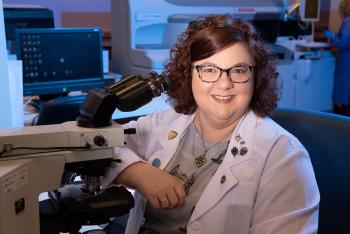Inspira Health is featured in a national colorectal cancer care report issued by Fight Colorectal...
Read More

The 2020 passing of Chadwick Boseman, a talented actor known for his portrayal of Marvel Studios’ Black Panther, shocked many people. How could a relatively young, seemingly healthy person die of colorectal cancer?
Unfortunately, colorectal cancer is more common than many of us think, and African Americans have the highest rates of incidence and mortality of any population in the United States. Understanding colorectal cancer and its risk factors can help ensure you take the correct steps to protect yourself and your loved ones from this potentially fatal disease.
Colorectal cancer is a disease where the cells in the colon or rectum grow out of control. “Colorectal cancer often develops from precancerous polyps, which are abnormal clumps of cells that form on the lining of the colon or rectum,” said Peter J. Senatore, Jr., M.D., director of the Rectal Cancer Program at Inspira Health. “While most colon polyps are harmless, some can become cancerous if left untreated.”
In the early stages of colorectal cancer, many people experience no symptoms, but as it progresses, symptoms are more likely to be prominent. Common colorectal cancer symptoms include:
Although these symptoms may be due to something other than cancer, the only way to know for sure is by checking with your doctor. Colorectal cancer can be curable if caught early, but it can also be fatal if it spreads to other parts of the body.
“Colorectal cancer disproportionately affects the Black community,” said Dr. Senatore. “African Americans are 20 percent more likely to get colorectal cancer and 40 percent more likely to die from it than other populations.” The reasons for these health disparities are complex, involving a combination of both health-related factors and social determinants of health, including socioeconomic status, neighborhood structure and environment, access to healthy food and opportunities for physical activity.
Health-related risk factors for colorectal cancer include:
“When colorectal cancer gets caught in its early stages, the disease is highly treatable,” said Dr. Senatore. “Colonoscopies are the best way to prevent and find colorectal cancers early.” The American Cancer Society recommends regular screening for all adults beginning at age 45. People at increased risk should talk to their doctor about starting earlier.
Routine cancer screenings can save your life. If you’re lacking insurance, you may qualify for free colorectal cancer screening through the New Jersey Cancer Education and Early Detection (NJCEED) program.
Click to learn more about colorectal cancer and screening options.
Inspira Health is a high reliability organization (HRO), which means safety is the top priority for patients and staff. To make an appointment, call 1-800-INSPIRA.

Inspira Health is featured in a national colorectal cancer care report issued by Fight Colorectal...
Read More
Inspira doctor shares how a balanced gut microbiome can be your ally in the prevention and early...
Read More
Colorectal cancer is expected to cause approximately 52,000 deaths this year. Here are the symptoms...
Read More
The material set forth in this site in no way seeks to diagnose or treat illness or to serve as a substitute for professional medical care. Please speak with your health care provider if you have a health concern or if you are considering adopting any exercise program or dietary guidelines. For permission to reprint any portion of this website or to be removed from a notification list, please contact us at (856) 537-6772